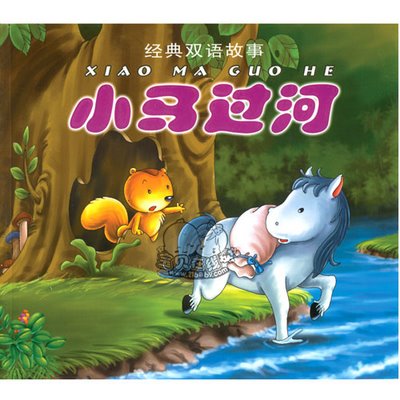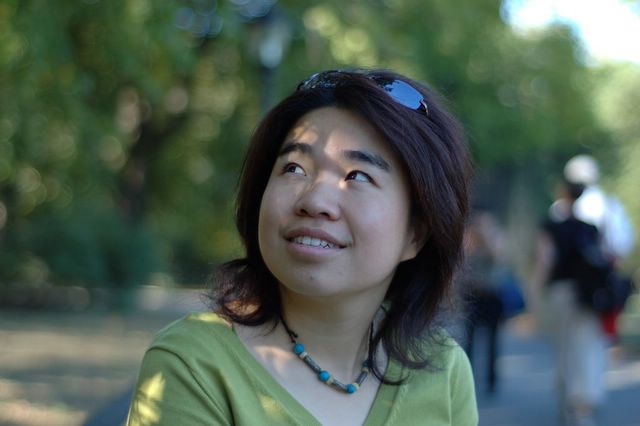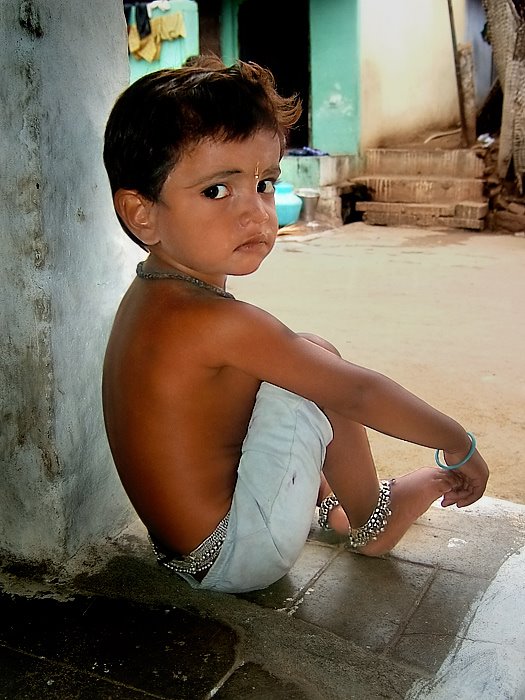
在安娜海姆被冷了场,在亚特兰大丢了手机,觉得自己最近的人生有点儿背。所以迫不及待地要买个新手机跟大家诉苦。手机买了,没人来电话来;给人家打电话,都忙着呢。想找工作,问了两个老师关于两个工作岗位,结果得出了完全不同的结论。一个说甲工作好,有挑战性但是没有稳定性,一切都看个人和团队的表现。一个说乙工作好,有稳定性,一切重在人际关系。我一听就懵了,感觉和站在河边的小马一样,觉得往哪儿走都得被带到沟里去。心里空空的,回到中国我能生存下来吗?最糟糕的是,我忘了故事的结尾,小马到底是怎么走出这个囚徒困境的。当年最恨老师的微言大义,光顾着捉摸小松鼠的险恶用心了,一不留神把结尾就给忘了。看来经典就是得重读!重读之后才发现,原来小马的问题是不知道自己有多高。理论上来说,我只要找个老牛和小松鼠和自己比比就知道了。可是身边都是“大牛”,让我到哪儿找小松鼠去呢?
我把“人际关系”四个大字贴在书架上,把原来的“虚怀若谷”请到了一边儿上。准备再写一个“世事洞明皆学问,人情练达即文章”贴到脑门儿上,好让人人都提醒我。根据网上的介绍,这就话在英译本的《红楼梦》是这样翻译的:“A grasp of mundane affairs is genuine knowledge,Understanding of wordly wisdom is true learning”。与大家共勉!
===============================================
以下是《小马过河》,彭文席
有一座小山旁边,住着一匹老马和一匹小马。小马整天跟着妈妈,从来不肯离开一步。 有一天,妈妈对小马说: “宝宝,你现在已经是个大孩子了。你能帮助妈妈做点事吗?” 小马点了点头说: “怎么不能呢!我可喜欢做事啦。” 妈妈听了,高兴地笑着说: “宝宝真是好孩子。那么,你就把这袋麦子背到磨房里去吧。” 妈妈说着,就把一袋麦子放在小马的背上。 小马试了试,一点儿也不重。可是小马对妈妈说: “妈妈,你跟我一块儿去好吗?” 妈妈说: “怎么,妈妈要是能够跟你一块儿去,还要你帮什么忙呢?快点去吧,早点去早点回来,妈妈等着你吃饭。” 小马独个儿背着麦子向磨房走去。 从小马的家到磨房,要蹚过一条小河。小马走到小河边,看见河水挡在前面哗啦哗啦地响着,心里有点怕了。 “过去呢,还是不过去呢?妈妈不在身边,怎么办啊?”小马想着,就回过头去朝后望。他希望这时候妈妈跑来就好了。 可是他没有看到妈妈的影子,他只看见老牛伯伯在河边吃草。于是小马连忙“嘀嗒嘀嗒”地跑过去,问牛伯伯: “牛伯伯,请你告诉我,我能过河去吗?” 牛伯伯回答说: “水很浅哪。还不到我的小腿那么深,怎么不能过去呢。” 小马听了,立刻就朝小河跑去。 “喂!慢点跑,慢点跑!” 咦!是谁在说话呢? 小马停住脚抬头一看,原来是一只小松鼠。 小松鼠蹲在一棵大松树上,摇着大尾巴,对小马说: “小马,你可别听老牛的话。水很深,一下水就会淹死的!” 小马问松鼠: “你怎么知道水很深呢?” 小松鼠说: “我怎么不知道呢。昨天,我们的一个同伴过河,就给大水冲跑了!” 小马说: “那么牛伯伯为什么说水很浅呢?” 小松鼠说: “浅?浅,怎么会把我们的同伴冲跑了呢?你可别听老牛的话!” 小河里的水到底是深呢,还是浅呢?小马没有主意了。 “唉!还是回家去问问妈妈吧。”小马甩了甩尾巴,“的的嗒嗒”地又往家里跑。 妈妈看见小马回来了,奇怪地问: “咦!你怎么就回来了呢?” 小马很难为情地说: “河里的水很深,过……过不去。……” 妈妈说: “怎么会很深呢?昨天小驴叔叔还到河那边驮了好几趟柴呢。他说河水只齐到他肚子那儿,很浅。” “是这样……老牛伯伯也说水很浅。他说只到他小腿那儿……” “那么你为什么不过去呢?” “可是……松鼠说……水很深,昨天,他的一个同伴过河,给河水冲走了。” “那么到底是深呢,还是浅呢?你仔细想过他们说的话吗?” “想了一下,可是没有仔细想,不知道他们俩谁说得对。” 妈妈笑了。妈妈说: “你现在仔细想想看:牛伯伯有多高多大,小松鼠又有多高多大;你再把小松鼠和你自己比一比;你有多高多大,小松鼠又有多高多大,你就知道能不能过河了。” 小马听了妈妈的话,高兴得跳起来。他说: “明白了,明白了,河里水不深,我过得去。唉!我刚才怎么不仔细想想呢!” 小马说着,就连蹦带跳地朝河边跑去。 小马一口气跑到河边,立刻跳到水里。河水刚好齐到小马的膝盖,不像老牛伯伯说的那么浅,也不像小松鼠说的那么深。 小马背着麦子,很快活地蹚着水,“扑通扑通”地过了河,到磨房去了。 (选自《小马过河》,中国少年儿童出版社,1957年7月版)
===============================================










